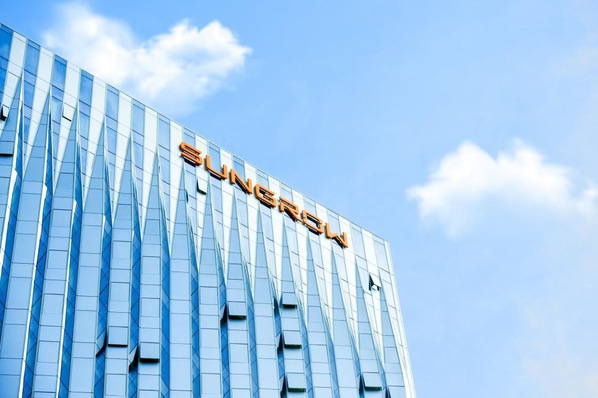In this installment of our topic of the Week, we look ahead to the next The smarter E and show what companies can do to reduce their carbon emissions:
More and more companies – both large and small – are taking their responsibility for protecting the global climate seriously. EM-Power, the exhibition for intelligent energy use in industry and buildings, helps companies looking to reduce their carbon emissions. Visitors to the exhibition will learn about products and solutions for optimizing their carbon footprint across sectors and achieving carbon neutrality. At the EM-Power Forum, they will also get an in-depth look at procuring energy from renewable sources, for example via power purchase agreements (PPAs). EM-Power will be held in conjunction with three other energy exhibitions from June 17 to 19, 2020 in Munich as part of The smarter E Europe, the continent’s largest platform for the energy industry.
Transition to 100% renewable energy
From Ikea and Unilever to Mars and Budweiser: The RE100 global initiative brings together the world’s most influential brands. They have all agreed to transition to 100 percent renewable energy across sectors by 2050 and to advocate for a future free of CO2 emissions. More than 200 major companies have joined the initiative, including the software company Adobe, the German car and motorcycle manufacturer BMW and the world’s largest banking and financial services company HSBC. For these companies, the commitment to renewable energy not only benefits their image, it also saves them the costs associated with conventional energy sources.
7.5 GW of PPAs signed
These considerations are also driving current developments in the solar market. According to SolarPower Europe, the share of European companies that use renewable energy has increased dramatically in recent years. The solar industry association reports that 7.5 gigawatts of power purchase agreements (PPAs) have been signed over the past five years, with more than 1.6 gigawatts worth of deals already signed in this year alone. Commercial and industrial on-site procurement accounted for 3.4 gigawatts last year, making “corporate sourcing” the buzzword of the hour. This upswing is driven by companies’ desire to reduce their carbon footprint by taking steps such as transitioning to renewable energy. SolarPower Europe expects the trend to continue.
Companies move toward a new energy world
Leading companies in the solar industry have responded to these developments and are now offering complete solutions for commercial and industrial enterprises. For example, BayWa r.e. has already helped two German supermarkets transition to on-site consumption of solar power. The global property developer Goodman has also recognized the benefits of photovoltaics, commissioning BayWa r.e. to install solar modules at three large logistics centers in southern Germany and the Netherlands. Through these types of projects, Goodman offers its customers the opportunity to take advantage of renewable energy and significantly reduce their carbon footprint. As part of its sustainability strategy, Goodman now includes carbon-neutral buildings in its portfolio.
ESM, a mechanical engineering firm specializing in energy and vibration technology, has already completed its energy transition.Based in Heppenheim, approximately 60 kilometers south of Frankfurt, the company has designed its production lines with energy efficiency in mind. Its offices and manufacturing facilities are built to passive house standards and the company produces its own geothermal, solar and wind power. ESM is also committed to e-mobility and is encouraging its suppliers to make their production as climate-friendly as possible.
Opportunities for sector coupling
The emergence of solar power 30 years ago was largely due to the installation of photovoltaic systems in private homes. Today, however, more and more companies are capitalizing on the opportunities opened up by self-generated power from renewable sources – whether to supply their business with cost-effective and environmentally-friendly electricity or to ensure that their production processes are carbon neutral.
Sector coupling creates a wide range of possibilities, especially for companies that require electricity, heating and mobility. For example, they can use combined heat and power plants to efficiently generate electrical and heating energy, utilize waste heat from production facilities or employ solar power generated on their own rooftop to power electric devices as well as to charge electric vehicles.
EM-Power 2020: The ideal meeting point for corporate sourcing
To support companies on the path to carbon neutrality, EM-Power, the exhibition for intelligent energy use in industry and buildings, highlights the opportunities and potential of corporate sourcing. It presents examples of industrial sector coupling and exhibits products that can help companies transition their processes to renewable energy. In addition, the EM-Power Forum offers a dedicated session with presentations on the topic of corporate sourcing. Visitors to Munich will have the opportunity to learn everything they need to know about how companies can minimize their carbon emissions and satisfy the demands of customers and investors for more sustainability.
EM-Power is held in conjunction with the three parallel energy exhibitions (Intersolar Europe, ees Europe and Power2Drive Europe) that present the cornerstones of the new energy world. Together they make up The smarter E Europe, the continent’s largest platform for the energy industry and the perfect event for those looking to go carbon neutral.
EM-Power and the parallel events will take place from June 17 to 19, 2020 at Messe München as part of the innovation hub The smarter E Europe. (HCN)
Here, in case you missed them, are Part 1 and Part 2 of this week's series.







